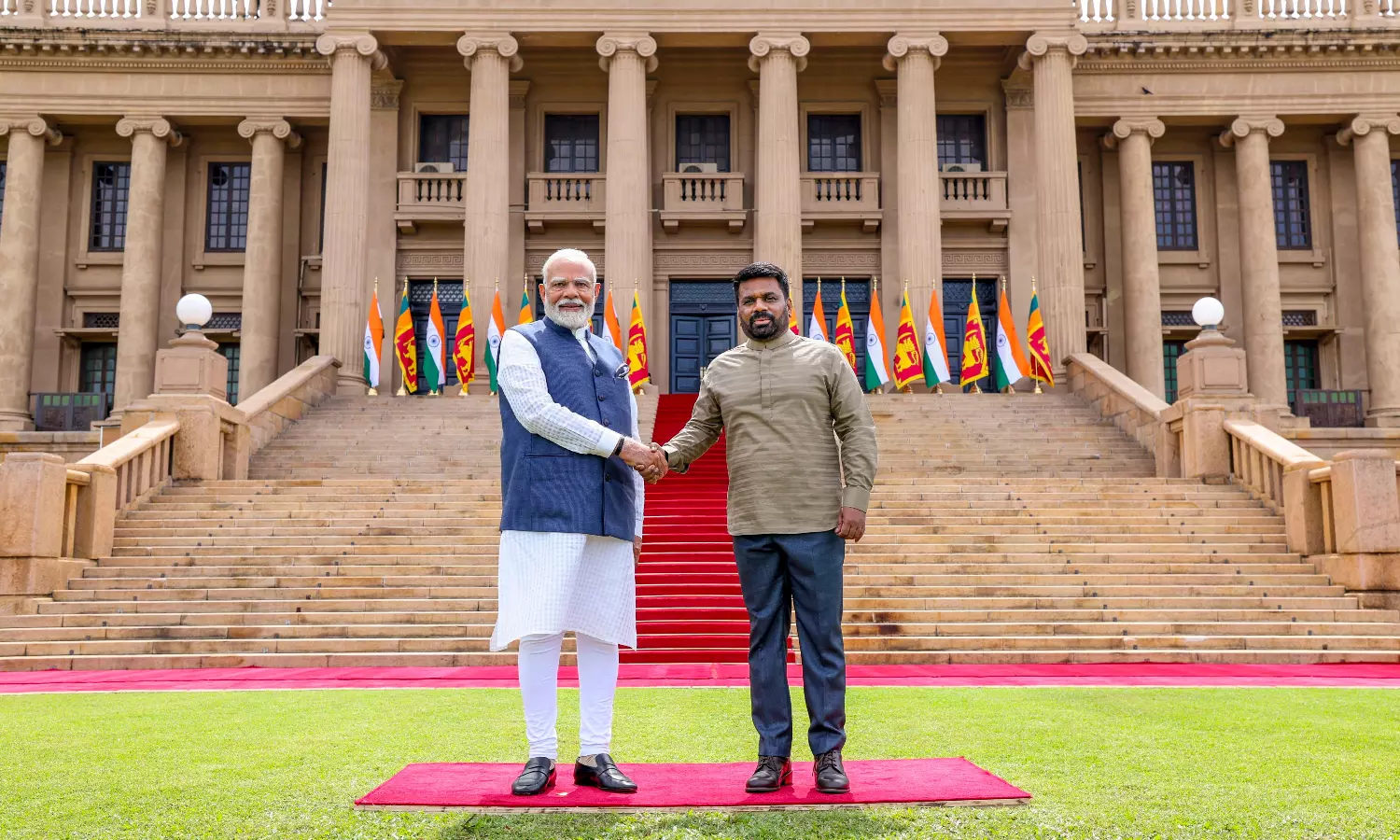DC Edit | Delhi & Colombo in sync; but Chennai view differs
As India and Sri Lanka strengthen strategic bonds, unresolved Tamil Nadu concerns over Katchatheevu and fishermen’s rights expose the fault lines between New Delhi’s diplomacy and Chennai’s demands.;

The Prime Minister could not have asked for more from his visit to Colombo. The warmth of the reception and the conferring of the highest civilian honour may have been just a reflection now of strengthening ties but what was significant was the Sri Lankan president emphasising once again that his country would not allow anything that would put India’s security at risk.
The prospect of enhancing bilateral ties, particularly in defence and energy sectors, had brightened considerably even before this meeting as Sri Lanka’s president Anura Dissanayake had made New Delhi his first pit stop after being elected. Modi’s Colombo outreach after the Sri Lankan president had visited Beijing may have helped Sri Lanka keep its pragmatic balance between the two powers.
It may be somewhat incongruous that India’s ties with countries with which it shares a land border are more strained than with Sri Lanka. But, given the history of Sri Lanka’s ethnic conflict when the ties were marked by suspicion and distrust for decades despite India’s unwise stationing of the Indian Peace Keeping Force on the island, the nation’s regimes changed dramatically after the post-Covid economic crisis and India has found a friend for peaceful coexistence without tensions.
Even so, the view from New Delhi that has positively restored the Sri Lankan relationship after being a true friend in need and Chennai where certain forces not only dream of an end to the Tamil fishermen crisis of arrests and ill treatment at the hands of the Sri Lankan Navy but also believe it is possible to ask for retransfer of the Katchatheevu islet that Mrs Indira Gandhi gifted away in the 1970s.
The Prime Minister may seem preoccupied with celebrating an ancient poet’s contribution to the Tamil language and even fixated in his political vision of his party making its presence felt in the southern state, as emphasised in his visit to unveil India’s first vertical lift sea bridge near Rameswaram and praying to Lord Ram.
What tends to spoil the view from Chennai is that there is no end in sight to the fishermen’s issue — to which ownership of the largely uninhabited Katchatheevu territory is inextricably woven — because the Indian fishermen refuse to give up poaching or bottom fishing in Sri Lankan waters and too often get caught to be hauled up before northern Sri Lankan courts.
Modi placed on record how 3,700 Indian fishermen, including 600 last year, were brought back safely from Sri Lanka, with some rescued from the death penalty. Getting them back is owed to Delhi’s diplomacy, even so, the festering problem lends a distinct south-north perspective on the issue of Sri Lanka as viewed from Chennai and New Delhi.
It was remarkable that the Sri Lankan Tamils voted overwhelmingly last year in favour of Dissanayake to bring about a change from the time of the China-fixated Rajapaksas. What PM Modi and foreign minister Jaishankar have been unable to achieve, however, is to establish a bilateral mechanism that would work on a lasting solution well beyond the efforts taken to convert Tamil Nadu’s fishermen to deep sea fishing.
Tamil Nadu fulminating on the problem and passing an Assembly resolution on the restoration of Katchatheevu may have prompted Modi to take potshots at Tamil leaders with an irreverent reference to the language in which they sign their names just goes to show that the differences will continue to rankle as the state leans on its image of being the principal opponent against the ruling forces on various counts. Even then, New Delhi may take the credit for restoring ties with Sri Lanka to the happy state they are in today.

